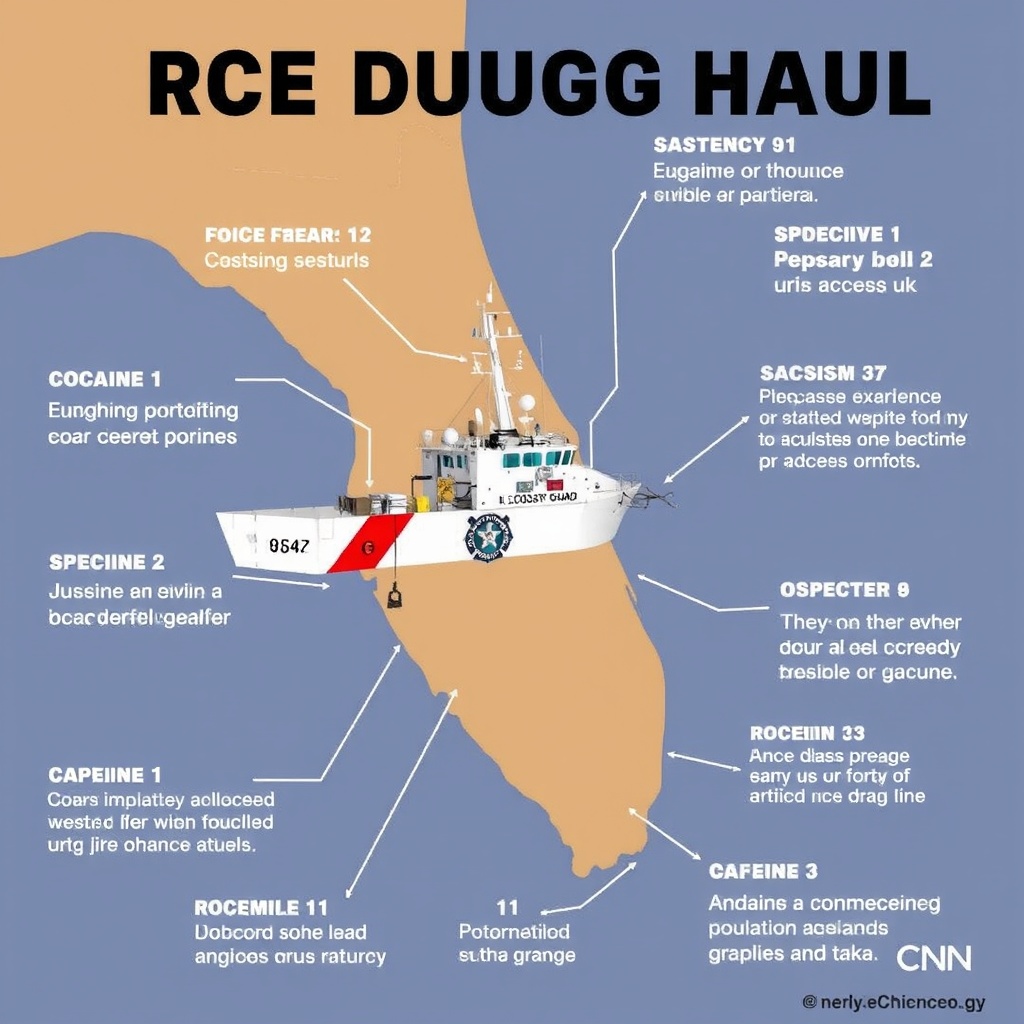Introduction
The US Coast Guard has made a record-breaking seizure of illicit drugs, offloading a massive haul in Florida that could have had devastating consequences if it had reached the streets. According to officials, the seized drugs were enough to "fatally overdose the entire population" of Florida, highlighting the gravity of the situation and the importance of the Coast Guard's efforts in combating the drug trade. In this article, we will delve into the details of the seizure, the impact of the drug trade on communities, and the efforts being made to combat this issue.
The Record-Breaking Seizure
The US Coast Guard cutter, which intercepted the illicit drugs, brought the massive haul to shore on Monday, marking a significant victory in the war against the drug trade. The seizure included a record amount of cocaine, which, if it had made it to the streets, could have yielded 23 million deadly doses. To put this into perspective, the population of Florida is approximately 21.7 million people, making the seized amount enough to fatally overdose nearly the entire population. This staggering statistic highlights the severity of the issue and the potential consequences if these drugs had reached their intended destination.
The Coast Guard's efforts in intercepting this massive haul are a testament to their dedication and hard work in protecting American communities from the scourge of illicit drugs. The seizure is a significant blow to the drug trade, dealing a major setback to the cartels and organizations involved in the smuggling and distribution of these substances. The successful interception of this record-breaking haul demonstrates the effectiveness of the Coast Guard's strategies and the importance of their role in keeping America's coastlines and communities safe.
The Impact of the Drug Trade on Communities
The drug trade has a devastating impact on communities, causing widespread harm and destruction. Illicit drugs, such as cocaine, are highly addictive and can have fatal consequences, especially when used in large quantities or in combination with other substances. The overdose epidemic has claimed countless lives, leaving families and communities shattered and heartbroken. According to the Centers for Disease Control and Prevention (CDC), more than 100,000 people died from drug overdoses in the United States in the 12-month period ending April 2022, with synthetic opioids, such as fentanyl, being the primary driver of these deaths.
The economic and social costs of the drug trade are also significant, with estimates suggesting that the total economic burden of the opioid crisis alone exceeds $1 trillion. The impact on communities extends beyond the individual users, affecting families, friends, and the broader community. The drug trade also perpetuates crime, violence, and corruption, undermining the rule of law and eroding trust in institutions. The seizure of this record-breaking haul is a significant step towards disrupting the drug trade and reducing the harm caused by these substances.
Combating the Drug Trade: Efforts and Strategies
Combating the drug trade requires a multi-faceted approach that involves law enforcement, healthcare, education, and community engagement. The US Coast Guard plays a critical role in this effort, working to intercept and disrupt the flow of illicit drugs into the country. The Coast Guard's strategies include increased patrols, surveillance, and intelligence gathering, as well as collaboration with other law enforcement agencies, such as Customs and Border Protection and the Drug Enforcement Administration (DEA).
In addition to law enforcement efforts, addressing the root causes of addiction and the demand for illicit drugs is crucial. This includes increasing access to healthcare, mental health services, and addiction treatment, as well as promoting education and awareness about the dangers of substance abuse. Community-based initiatives, such as peer support groups and outreach programs, can also play a vital role in preventing addiction and supporting those in recovery.
The federal government has also launched initiatives aimed at combating the opioid crisis, including the development of new treatments and medications, as well as increased funding for addiction research and treatment programs. The Substance Abuse and Mental Health Services Administration (SAMHSA) provides grants and resources to support state and local efforts to address the opioid crisis, while the DEA has launched programs aimed at reducing prescription drug abuse and promoting safe disposal of unused medications.
Conclusion
The record-breaking seizure of illicit drugs by the US Coast Guard is a significant victory in the war against the drug trade, highlighting the importance of their efforts in protecting American communities from the harm caused by these substances. The staggering statistic that the seized amount could have fatally overdosed nearly the entire population of Florida underscores the severity of the issue and the potential consequences if these drugs had reached their intended destination.
As we move forward, it is essential that we continue to support and enhance efforts to combat the drug trade, including law enforcement, healthcare, education, and community engagement. Addressing the root causes of addiction and the demand for illicit drugs is crucial, and increasing access to healthcare, mental health services, and addiction treatment is vital. By working together, we can reduce the harm caused by the drug trade and create safer, healthier communities for all. The US Coast Guard's record-breaking seizure is a testament to their dedication and hard work, and we must continue to support their efforts in keeping America's coastlines and communities safe.


Leave a comment